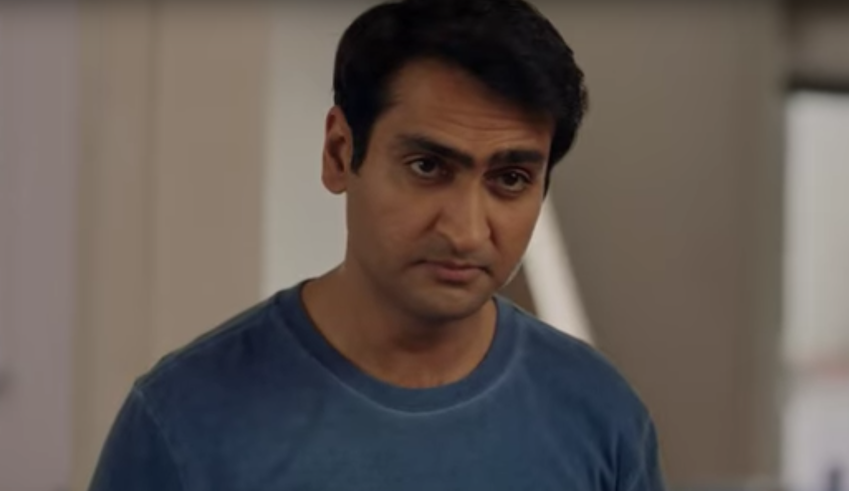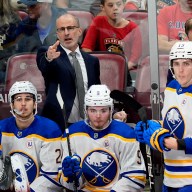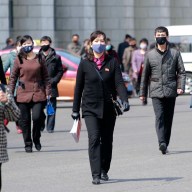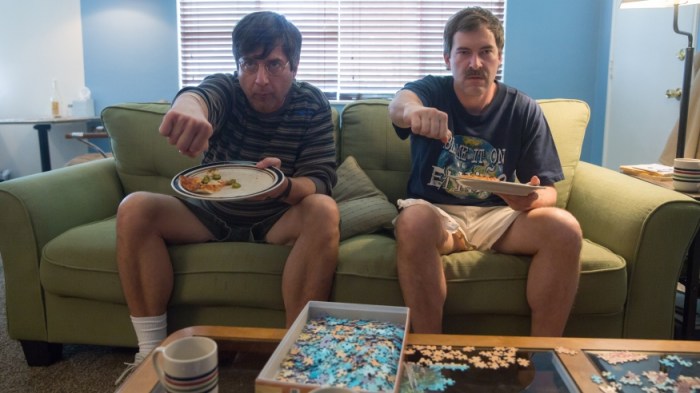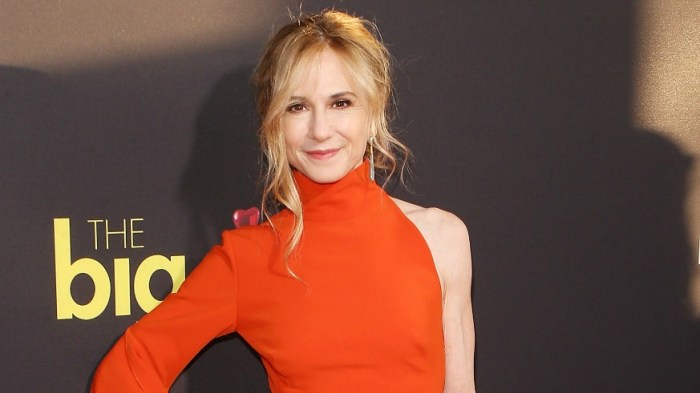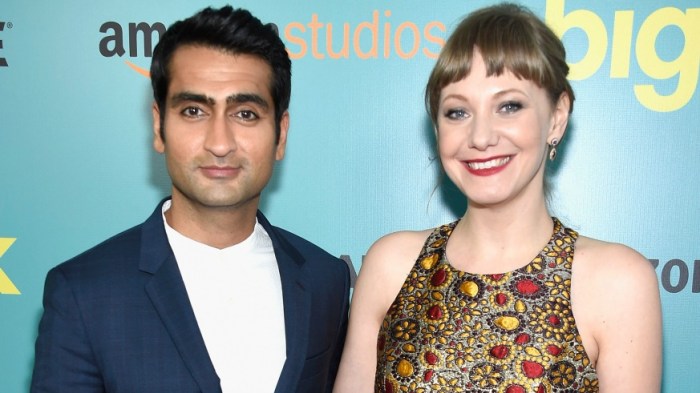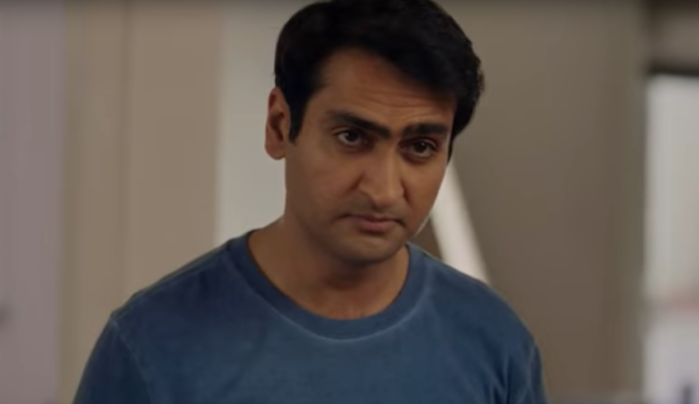‘The Big Sick’
Director: Michael Showalter
Stars: Kumail Nanjiani, Zoe Kazan
Rating: R
4 (out of 5) Globes
The best scene in “The Big Sick” has nothing to do with the main story. It’s not even funny, though the film is otherwise aces at blending the serious with the comedic. Kumail — a stand-up comic played by “Silicon Valley” and Twitter god Kumail Nanjiani, who based the film on a strange and crazy chapter of his life — has spent the movie reluctantly meeting women his mother (Zenobia Shroff), a traditional Pakistani, has set up for him. He finally gets along well with one of them, Khadija (Vella Lovell). She’s funny and smart and as skeezed out by arranged marriages as he is. But Kumail, who’s been secretly dating a white American, Emily (Zoe Kazan), shoots her down. He gives her the old “you deserve better” line. And Khadija throws those dreaded words back in his face: “People always tell me what I deserve. It’s bullshit.”
“The Big Sick” runs just shy of two hours long — an eternity for a comedy, which traditionally clock in around 90 minutes. Things have gotten a little out of hand in the Judd Apatow era, when endless ad-libbing meant ballooning running times. (The director’s cut of “The 40-Year-Old Virgin” is about 10 minutes shorter than “Goodfellas.”) Apatow served as a producer and a mentor on “The Big Sick,” but here’s a case where more is indeed more. This is a comedy that needs room to breathe, that would feel gutted if it ran a mere hour-and-a-half — the same way an epic trimmed of an hour by nervous studio execs would seem gutted. Among other things, it might have meant losing this key scene, which has no follow-through; Kumail doesn’t get the last word, he never mentions it to anyone else and we never see Khadija again. But her words haunt the rest of the film, and they give the film a texture and complexity that makes it unique.
There’s also a lot of plot — a lot of based-on-a-true-story horrors to get through. It’s a story of courtship, namely the one between its two screenwriters: Nanjiani and his wife Emily V. Gordon. They meet-cute, although even that bit is knotty: She jokingly heckles him as he does his act one night. He goes up to her after and pretends to give her shit, saying she really did throw him off, even if she meant it as a gag. He looks serious. She doesn’t know how to take this affront but plays along. This uncomfortable moment ends with them going home together. And you can actually see why: He was trying to find someone who shared his prickly sense of humor. And he found her.
“The Big Sick” tells an uneasy love story even before it gets to the wildest part: One night Emily, as she did in real life, fell sick and slipped into a coma. The two had technically split; Kumail had badly fumbled how to tell his parents about her; he never even told them Emily exists. But he feels compelled to stay by her side, even if that means awkwardly befriending her frazzled Midwestern parents, Beth and Terry (Holly Hunter and Ray Romano), who aren’t always sure how to bridge the cultural divide on top of being angry at the scoundrel who just broke their daughter’s heart.
There are a lot of scenes in the hospital. There are a lot of scenes of Kumail and Beth and Terry hanging out, getting to know each other, getting drunk and stress-eating after-hours delivery pizza. Technically it’s repetitive. But it’s repetitive in the manner of a chair being whittled out of oak. It’s repetitive because it involves people playing the wait game. Besides, it’s good company. Hunter and Romano are a hard screen pair to beat. She’s grouchy, sometimes almost feral; her best moment involves her growling, hunched over, through some grim-looking hospital food, “Best f—in’ sandwich ever.” He’s endearingly aloof but always surprising; he even raises a touching defense of that Internet-hated classic “Forrest Gump.”
You could shave five or 10 minutes off of “The Big Sick,” but it would require surgical precision. It has a lot to say — about honesty in relationships, about dealing with parents who are very different from you, about racism both small and big, and a bit about being a floundering stand-up in Chicago. But it also feels like an entire small world, and the script doesn’t feel compelled to tie up all loose ends or provide easy resolutions, even to Kumail’s parental problems. That’s not sloppiness; that, not its running time — which, frankly, isn’t even that long — is what makes it feel big.
Follow Matt Prigge on Twitter @mattprigge

